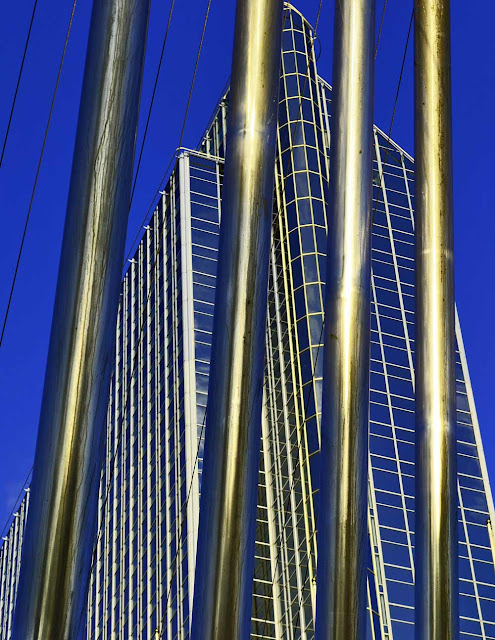Over the last few weeks it seems that some of my efforts have paid off: I came third in a
quarterly flash fiction competition, had a reading of a story of mine go up on the
site of a literary magazine and had a photo of mine selected for the
runner-up gallery in a monthly competition. My blog writing has some catching up to do, so here's the backstory on all these.
Although the word limit for the competition is 500 words, the flash fiction piece I submitted,
"Afterglow", just scrapes past 350 words. This is about the right length: any longer and the twist would seem either too laboured or too cheap, where it is intended simply to be a shift of awareness, and the connection and contrasts between the beginning and end would seem too disconnected. That said, it took no small amount of rumination and rewriting to get
those 350 words! Reflecting an obvious bias towards poetry, Samuel Taylor Coleridge considered "prose = words in their best order; poetry = the best words in their best order". Why prose should not involve the best words is not obvious to me, but the definition of poetry seems to fit much short fiction, particularly the constraints of flash fiction.
The first draft of "Afterglow" was written on a long-haul flight after I had woken and most other passengers were still asleep. It's the kind of isolation writing sometimes needs. But the draft had a longer journey ahead of it than the flight. Many revisions and a couple of rejections later it managed to land in third place in
FlashStories.net January 2011 competition, the results for which were announced in April. This also marks the first time I have actually been paid for fiction.
Because the competition site keeps stories online only for the quarter following the competition result, I will repost the story on this blog (along with other flash fiction of mine that gets published online).
For April,
Litro Magazine had the theme of science. I'd had a particular story idea kicking around for well over a year that would fit the bill (based on the
Novikov self-consistency conjecture, if you are interested in the actual sciency bit), but had been struggling with the point of view from which the story should be told. The focus of the story is not on a particular technology or the detail of the science but on the consequences for a particular character. Given that the story involves only a single person directly, it might seem a little odd to struggle with point of view... but you can find out why there were other points of view to consider by listening for yourself:
"Remembrance of Things Past" was accepted in spoken form for the site.
The actual writing was done over two days — to be precise, two of the days I was at
a conference where I was both speaking and hosting a track, as well as dealing with some other work. I'm not going to recommend that kind of overstuffed schedule as either a necessary or sufficient way to get writing done, but I have to say it lent a certain focus! As the saying has it, "if you want something done, ask a busy person".
My Ricoh R10 has had a mark on its scanner for a few months, which has led to somewhat careful framing and cropping of shots (and no small number of retakes and expletives). Camera repairs seem to take an age, so I've been reluctant to send it in for repair without a decent backup. I have switched from a Nokia N97 to a Nexus S, which means I now have a smart phone that is smart and pleasurable to use as a phone but cannot be considered a substitute for a compact camera.
Both convenience and quality matter. After buying a Nikon D3100 I have finally relented and the Ricoh is in for repair. Walking around with a DSLR is somewhat less discreet and significantly less convenient, but the obvious advantage is control and picture quality.
I was in Oslo last week and would normally have taken my compact with me. As that was not an option, the Nikon came along instead. The weather was excellent and the skies were clear, so one morning after a run I went back to my room to fetch my camera for a walk, during which I took the following:
This shot is of the Radisson Blu Plaza hotel, the tallest building in Oslo (in fact, the tallest building in Norway), seen through the steel supports of a sculpture next to a flyover and pedestrian underpass. The image is cropped, colour corrected and equalised. I submitted it to the monthly themed competition at
Karl Taylor Photography, April's theme being
Angles. I've submitted pictures to this site before, but this is the first time I've made the
gallery of the top 25 photos.
